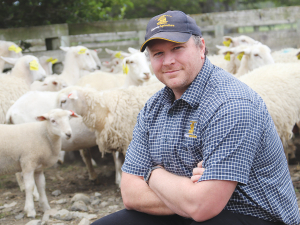Provisional tax has long been difficult to get right and expensive to get wrong.
But not anymore: the much-maligned old rules have been put out to pasture.
These assumed farmers and growers could correctly forecast their income tax liability ahead of time, but if their prediction was not spot-on they got slapped by Inland Revenue’s steep interest on top of the underpaid amount.
Now new rules provide greater certainty about payments and reduce compliance costs for businesses who calculate their payments using the standard method. This method means you base your payments on 105% of last year’s income tax liability (or 110% of the previous year’s liability if your return has not been filed). Most taxpayers pay provisional tax this way.
Many taxpayers will pay their first instalment under the new regime on August 28. So with that in mind, what do you need to know?
The biggest change applies to what IRD calls the ‘safe harbour’. If your actual income tax liability is less than $60,000, and you paid the amounts of tax required as per the standard method at your three provisional tax dates for that year; then you will not be charged IRD interest if you did not pay enough provisional tax -- provided any final balance is paid by your terminal tax date.
The safe harbour threshold was previously $50,000 and applied to individuals only. Increasing the threshold and extending it to companies and trusts is a significant win for smaller taxpayers.
The second change affects medium and larger taxpayers. If your actual income tax liability is $60,000 or more, and you paid provisional tax for that year based on the standard method; then you will not be charged IRD interest if you paid the amounts of tax due as per the standard method at your first and second provisional tax dates for that year, even if your actual liability is higher.
The final balance will be due at your third provisional tax date. IRD interest applies on any underpayment of tax from the third provisional tax date.
Capping the liability at the uplift amount for the first and second instalments provides certainty. For those in the rural sector, this will be welcomed because of the volatility they can experience in their income due to commodity prices, the exchange rate or extreme weather events.
Having the final balance due at the third provisional tax instalment is sensible because you should have a good estimation of their actual liability.
You will be charged IRD interest (currently 8.22%) if you pay less than the uplift amount on the dates required. Interest will be charged on the lower of the uplift amount or one third of the actual liability. Late payments will also incur late payment penalties.
If, for whatever reason, you cannot pay the full amount on the date it is due, you need not worry.
An IRD-approved tax pooling intermediary lets farmers and growers settle their tax liability when it suits them and when they know exactly how much they need to pay, at an interest cost that is much cheaper than what IRD charges – and without incurring late payment penalties.
For those with seasonal or very unpredictable income, it is an option to consider when looking at tax planning and cashflow management.
My recommendation is you speak with your accountant about how the new rules affect you ahead of your first instalment of provisional tax for the 2018 tax year.
• Chris Cunniffe is the chief executive of Tax Management NZ.



















